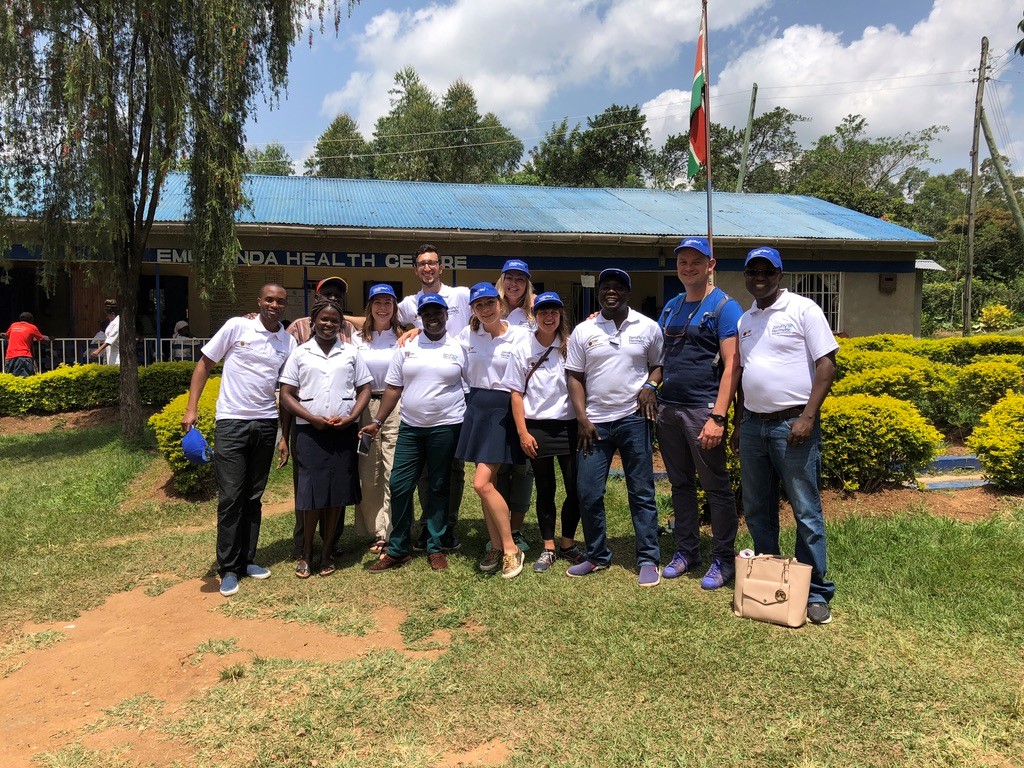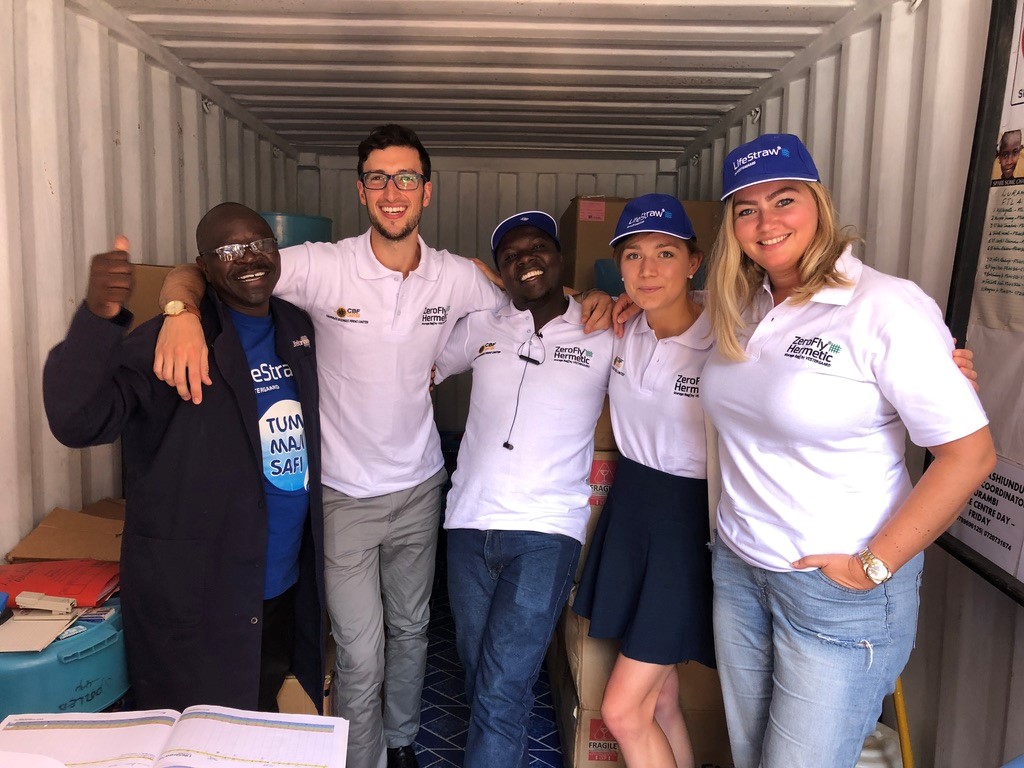Introductory Interview - Emma Declercq, Project Manager at BISCI
− 0 min readEmma Declercq, Project Manager at BISCI is interviewed by Shreyas Sridhar.
They discuss in detail the roles and responsibilities of Emma, her diverse experience, her work in the critical Fair and Smart Data spearhead and her vision for BISCI.
-
Shreyas: Hi Emma, thank you for joining me today. Shall we start with a quick introduction about you and your work at BISCI?
Emma: "I am Emma Declercq from Belgium. I have a Bachelor’s and a Master’s in Business Engineering from Solvay Brussels School. I majored in finance and data analytics in my Master. After my work at Bain & Company, I joined BISCI as a Project Manager. A main part that I support at BISCI, is the Fair and Smart Data Research program in collaboration with Solidaridad Network and Rabobank. We search for solutions in the global value chains to bring fair value in exchange for smart data (CO2) to smallholders. The program is initially focusing on cocoa and coffee commodities. My role is also focused on business impact projects with larger corporations who use our guidance for their sustainability transformation journeys. Currently at BISCI we work in the Chemical, Mining and Fashion industry. I am also a member of the PMO team, meaning that we are following up all actions in the activities that BISCI is pursuing, in the core of what BISCI is doing - Supply Chain Innovation in Digitisation and Sustainability."
Shreyas: Great! Indeed, the Fair and Smart Data spearhead is a key project and your contribution to it is critical. I would like to hear more on your work but before that could you briefly describe your journey from your bachelor’s to BISCI?
Emma: "During my Bachelor’s and Master’s as part of exchange programs, I went to China, France and Switzerland. Also worked in four different internships and soon after my Master’s, I started working at Bain & Company as an Associate Consultant. After working in Bain & Company I wanted to deep dive into the topics of supply chain and sustainability. I knew Ton Geurts from one of my internships and what BISCI was doing drew my attention."
Shreyas: That is brilliant. Very diverse experience and various countries as well. Can you explain that a little? How each internship experience was?
Emma: "Yes, so the first one was at a global, leading metallurgic company with some 90 production sites in 40 countries. I was a finance and supply chain intern at their Shanghai HQ. It was a steep learning process as part of the excellence program. I had the opportunity to meet a lot of people, nice dinners and even played ping pong! The work and their process were very impressive, how they tracked and monitored everything in the treasury. That is what influenced me to choose finance as a major in my Master’s. The second internship, I found it when I was in Shanghai. I wanted to gain some experience in the public space as well. So, I contacted the Consulate General of Belgium in Shanghai to see if there was an opportunity to work and as it happens, the only opportunity available was at the Consulate General in New York, which I happily accepted. My role there was to analyse any significant global events and understand how this could influence any companies in Belgium. This introduced me to various supply chain challenges and solutions."
Shreyas: Nice, that must have been quite a cultural change for you as well. How about the other internships?
Emma: "Yes, so I was on my second exchange at Switzerland and was looking for an internship again to have very diverse experiences and this time with also a larger focus on my Business Engineering study. In Switzerland I came across this company called Vestergaard which manufactures mosquito nets and supplies them to Africa, Asia and other parts of the world. My role here was mainly data analysis and business development, specifically in Kenya. We would walk around in the fields and streets in villages, talking to people to understand their needs. Often quite different from any assumptions made in the West!"
Shreyas: Quite a journey around the world already! I am sure it was very interesting. Now coming back to BISCI, could you share more details on your work?
Emma: "As project managers, it is our role to connect various stakeholders in projects and align everyone. This is a key strength of our ‘triple helix’ projects (between academia, corporations and government). For instance, BISCI currently works with the chemical, mining and the fashion industry. We have a highly collaborative approach with clients. At BISCI we have a rich content background thanks to our academic colleagues and several years of industrial insight experience. We support with programs on sustainability governance, risk management, understanding the depth of the recent Shell verdict and recent climate change report IPCC and consequences thereof.
I believe, the key factor is to work together with the client to co-develop solutions with them. As far as we have seen until now, this approach helps greatly to arrive at the best solution to fit the situation. As a plus, the clients are also fully engaged in the thinking process and own the solution. On the other hand, I also make sure that the analysis and materials during projects are transferred into a learning format for executive education. Thanks to our work with clients, we know their challenges and the right solutions to these challenges.
As I earlier mentioned, the key strength of BISCI are our ‘triple helix’ projects between academia, business and government. This requires some change management and precise communication, which at times can be challenging. Luckily, Ton supports us in this and can be very persuasive to the outside world. At the same time, he is a supportive coach that emphasizes team collaboration. Thanks to that, the team spirit is good and we complement each other."
Shreyas: Indeed! To follow up the previous question then, what are the parts of your job that you like the most?
Emma: "I would answer this in three different points: Impact, Autonomy and Team-Spirit. Firstly, Impact because there are probably few roles that are so aligned with my core values and mission. Corporations play an important role in society towards their consumers, employees, stakeholders, the environment and public authorities. Business leaders that grasp the new sustainability narrative and can create positive externalities, will also receive the tailwind in their businesses. Supply chains form a major part of making a business sustainable. So, I enjoy developing such solutions in close cooperation with the academics. You could see it this way, academics research “what and how is it possible”, and our project advisory team works on “how to make it possible for a particular corporation”. We also use the knowledge of students and where possible subjects for thesis writing are being created. Where applicable we look how to apply the knowledge of assistant professors from Fontys, TNO and UM into those type of project journeys.
The second part that I like is the autonomy. As BISCI is a young and rapidly developing organisation, a high degree of self-direction that is given to everyone – from interns to project leaders. It is very rare to find such a culture where trust gives everyone the opportunity to works at their best, cheers to that!
And finally, the Team-spirit. The BISCI team is a mix of academic staff, industry professionals and project managers. I enjoy the international diversity of our team and the open mindedness from each of my colleagues. They are smart people with their hearts in the right place. If I have been counting this well, we work with over 13 nationalities and at the BISCI summer drinks I believe I counted some 35 BISCIANS" :-)
Shreyas: I can completely agree with your answer there Emma! Great, so how would a normal workday look like for you?
Emma: "I start my day with a short walk around the neighbourhood to get the energy flowing. There are usually work sessions planned throughout the day with corporations that we support in their sustainability journey and transformation, this means we’ll listen carefully to their needs and I prepare background analysis and analyse their inputs. It also often happens that I prepare the weekly meeting of our Fair and Smart Data research program. We now have a first phase of ‘sprint projects’ where we answer initial questions to steer the program. Everyone is reading up and sharing insights on various topics. To be continued!"
Shreyas: What differences do see working here in the Netherlands and various other places you’ve previously worked at?
Emma: "A noticeable difference is the very open Dutch culture. I like this because any concern can be put on the table without having to worry about unnecessary backlash, it increases my trust in our team alignment and that we will achieve the best outcome. Even though I’m originally Flemish and grew up in a closed culture, I enjoy the openness in the Netherlands. Very refreshing!"
Shreyas: You recently moved to Maastricht; how do you like the city?
Emma: "I have already had the chance to explore the city a couple of times earlier. I greatly enjoy the university vibe, the cosiness of the city and the proximity to nature. Street names in Maastricht have Belgian names. The statue of d’Artagnan close to the Tongerseplein remembers us all our joint history."
Shreyas: Definitely, as you might have already seen, most others at BISCI are quite familiar to the city and each have their own unique place that they love in Maastricht. So do ask around for suggestions and you can have a diverse experience within the city as well! To wrap this up, maybe briefly could you say what your vision for BISCI is?
Emma: "A key strength at BISCI is we are growing a great network between academia, governmental bodies and companies. Ecosystems like in the Healthcare hub or the growing coalition in Groene Chemie (Feedstock transition) are great examples. It is a privilege to have various ecosystems (Agrifood, chemical, healthcare, logistics etc.). I imagine that with all the experience we are putting together now, we could write a book with a multi-year strategy guiding companies and governmental bodies in their sustainability path in a very broad scope. It would be great to create such an offering with public value, which helps more and more businesses in our society to work towards the right direction."
Shreyas: We do have these quickly growing ecosystems and the knowledge we develop through these projects after a certain point can surely form a great guide for companies to work on their sustainability transformations. Thank you for your time and sharing your thoughts here. Good luck with your work in the critical Fair and Smart Data spearhead and of course other projects as well!




